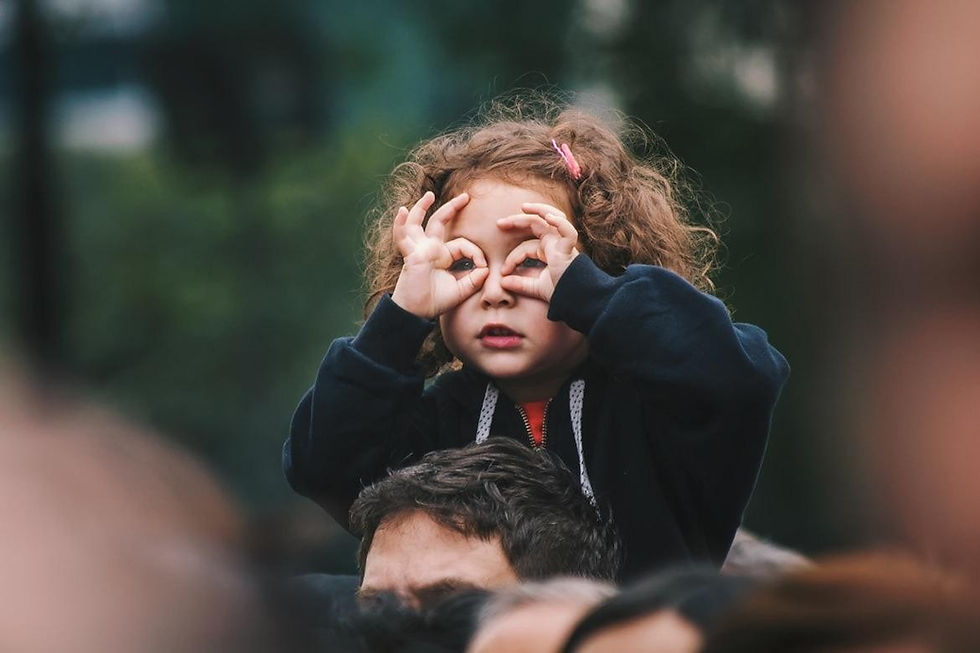What Is Play Therapy for Children and What To Expect at Your Visit
- Alex Goreham

- Aug 13
- 4 min read

Do you have children who are struggling emotionally and socially? With so many modes of treatment being touted online, it’s not always easy to determine what kind of help is necessary. Worse yet, your kid may not be able to fully articulate how they feel, making life challenging for you as a parent.
Indeed, understanding kids isn’t the easiest thing in the world, but here’s what we do know:
Children love to play — and it’s through play that we as their caregivers can understand and help them manage and express emotions.
We’re talking about play therapy. Find out what play therapy for children is all about and everything else you need to know if you’re considering this form of support for your child.
What Is Play Therapy for Children?
Play therapy is a form of counselling that uses play as the primary medium for communication and healing. Instead of relying on verbal expression (which, as we know, can be hard for young children), play therapy lets kids communicate through toys, art, games, and storytelling.
When children engage in play with a trained therapist, they can safely explore their thoughts, behaviours, and emotions. The therapist observes and gently interacts, guiding the child toward healthier coping and self-understanding.
This approach is especially helpful for kids dealing with anxiety, grief, trauma, or social challenges. Even if the problem isn’t fully understood yet, play therapy for children can help uncover the root of emotional distress in a gentle, child-centered way.
How Play Therapy Works
Children don’t always have the ability to tell you they’re anxious, overwhelmed, or confused. But you might notice the signs: outbursts, withdrawal, sleep issues, trouble focusing, or a sudden change in how they relate to others.
It’s often during these moments that families come to us.
Here’s how play therapy works to support your child:
Emotional expression: Kids may act out scenes using dolls, build out fears with blocks, or draw feelings they don’t yet have names for.
Safe processing: A trained therapist gently tracks and reflects their play to help them feel validated and understood.
Coping skill development: Through guided activities, kids learn strategies for calming down, expressing needs, and problem-solving.
Relational healing: Children who’ve had disrupted trust or difficult social experiences begin to rebuild a sense of connection through play.
Over time, this leads to more regulated emotions, stronger confidence, and better day-to-day functioning — at home, at school, and with peers.
In our Life Redefined play therapy sessions, we focus on creating a safe and supportive space where your child feels seen and accepted just as they are. Our approach to play therapy is especially helpful for children who have experienced trauma, stress, or difficult transitions.
The Benefits of Play Therapy at Life Redefined
While every child’s needs are different, the most common outcomes we see include:
Better understanding of feelings
Increased sense of safety and trust
Reduced symptoms of anxiety and depression
Improved social skills development for kids
Strengthened parent-child connection
Greater resilience when facing stress or change
We’ve supported children through grief, bullying, school struggles, family transitions, and more. And through it all, play has remained a powerful and effective way to help them grow.
What To Expect in Play Therapy
If you’re new to the process, you might be wondering what to expect in play therapy. Our team works closely with parents to make sure the process feels comfortable, clear, and collaborative from the very first visit.
Here’s how it typically works at Life Redefined:
Initial Parent Consultation
Before the first session with your child, you’ll meet with the therapist to talk through your concerns, family dynamics, developmental history, and goals for therapy. This initial step helps us tailor sessions to your child’s unique needs.
The First Session With Your Child
The first play therapy session is all about helping your child feel safe and at ease.
We’ll introduce them to the space, the toys, and the process in a way that feels natural and pressure-free. Kids are never forced to talk or play in a specific way. Our role is to follow their lead with gentle guidance.
Ongoing Sessions
Most children attend weekly sessions, though frequency may vary. As your child engages in therapeutic play, the therapist will observe patterns, support emotional expression, and build trust over time. You’ll also receive regular updates and recommendations, so you’re never left out of the loop.
Your Involvement as a Parent
While sessions are one-on-one with your child, parent involvement is a key part of the process. We offer check-ins, coaching, and feedback to help you support your child’s progress at home and strengthen your relationship.
Your Child’s Emotional Healing Is a Game Away
Parenting a child who’s struggling can be overwhelming, especially when you feel unsure of how to help, but you don’t have to figure it all out on your own.
If you’re considering play therapy for children, we’re here to walk beside you — with care, experience, and a child-first approach that honors your family’s needs.
Reach out for a free consultation, and let’s talk about your child’s challenges, explore how play therapy works, and create a path toward growth and healing — together.



Comments